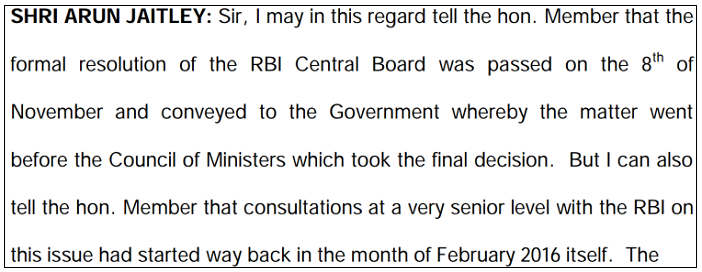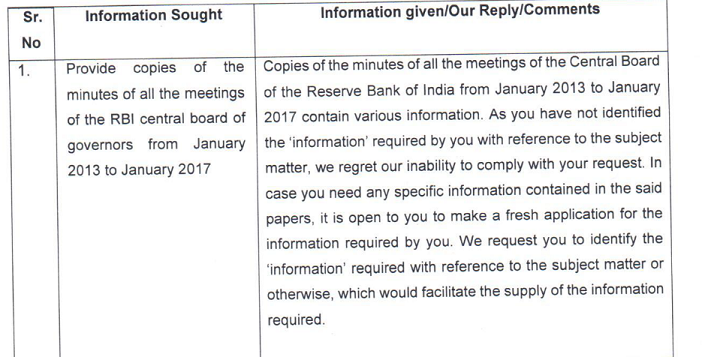[orc]In a fresh case, the Reserve Bank of India (RBI) resorted to jugglery of words to deny information to an applicant under the RTI. The RBI refused to share the minutes of meeting of the RBI central board of governors under the pretext that the applicant did not identify ‘information’
The Reserve Bank of India’s (RBI) reluctance to share information after demonetization is well known. With each passing day, the RBI seems to be finding new ways to avoid sharing information. In response to an application under RTI seeking copies of the ‘meeting minutes’ of the RBI central board of governors for the last 4 years, the RBI asked the applicant to identify ‘information’ required.
What was sought from the RBI?
The RTI application to the RBI sought the meeting minutes since the Finance Minister Mr. Arun Jaitley told the Rajya Sabha that consultations at a very senior level of the RBI on the issue of demonetization had started way back in the month of February 2016. He also mentioned that the RBI Board in the month of May 2016, as a part of these consultations, approved the design and took a decision to introduce high denominational currency which was required to be printed as a replacement currency.
The following specific information was sought from the RBI.
- Copies of the minutes of all the meetings of the RBI central board of governors from January 2013 to January 2017
- List of meetings held by the RBI central board of governors from January 2013 to January 2017 including the date, list of people who attended.
RBI’s jugglery of words to deny information
In response, the Central Public Information Officer (CPIO) of the RBI asked the applicant to identify ‘information’ since the minutes contained various information. The response went onto say that the applicant has not identified the information required and hence they cannot comply with the request. They advised the applicant to make a fresh application after identifying the information. To the second query, RBI in its response mentioned that 25 meetings of the central board of governors were held during the given period.
Why is the response a cause for concern?
Section 2(f) of the RTI act defines ‘information’ as any material in any form that includes records, documents, memos etc. It also includes material held in electronic form. The minutes of meeting of the RBI central board clearly qualify as ‘records’ and ‘documents’. The applicant just sought the copy of the minutes. Hence the contention that the applicant did not identify ‘information’ does not hold water. In fact, the applicant has made it easy for the CPIO to disclose information because there is no culling or collation of information.
The jugglery of words by the RBI looks like another attempt to deny information at any cost and this sets a dangerous precedent.





